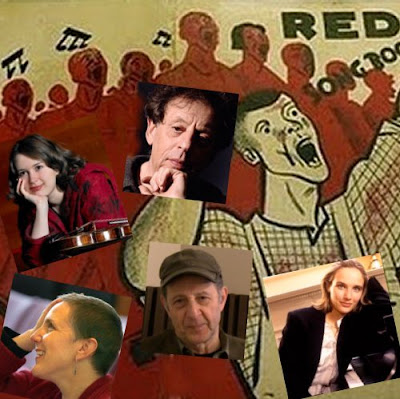The universe is a symphony of vibrating strings
The subatomic particles we see in nature, the quarks, the electrons are nothing but musical notes on a tiny vibrating string... Physics is nothing but the laws of harmony that you can write on vibrating strings... The universe is a symphony of vibrating strings.That extract comes from a talk by the theoretical physicist Michio Kaku. It is quoted in the recently published The Jazz of Physics by Stephon Alexander, who is a theoretical physicist specializing in string theory and loop quantum gravity and also an accomplished jazz saxophonist. (Stephon Alexander is an African American and senior black physicists are as rare as senior black conductors: when he was a PhD student at Brown University in the late 1990s Alexander was one of just three black physics students at PhD level in the U.S.)
String theory abandons the dogma of traditional physics that a hyper-microscopic view of a vibrating string would show atoms, and instead identifies that there is a fundamental level beyond the atoms which comprises an interlinked network of vibrating strings of energy. String theory is of major importance because it does not just apply to vibrating strings but applies to all matter; which is why it has been dubbed 'the theory of everything'. Stephon Alexander's book is pivotal because it moves the teachings of master veena player and spiritual teacher Hazrat Inayat Khan on the axiomatic role of vibrations - which have influenced many composers including Karlheinz Stockhausen and Jonathan Harvey - from the arena of fuzzy science into scientifically rigorous and peer reviewed academia.
In The Jazz of Physics Stephon Alexander links musical forms to cosmology, pointing out that the millions of stars within galaxies are organised into self-similar fractals, just like the fractal structures found in the compositions of Bach and Ligeti, and he uses variants of Feynman diagrams to explain phenomena such as the symmetrical chords that invoke ambivalence in the music of Ravel and others. Words such as cosmology are not the stuff of which click bait is made. But those who still believe that the way to save classical music is to reduce it to yet another tawdry entertainment should ponder on these wise words from Stephon Alexander:
What I had first seen as psychobabble had become an avenue of productivity. [Wolfgang] Pauli's conversations with Jung, were, after all, what led Pauli to discover a new property of matter and a new law of nature. Since my college days, ideas connecting music and cosmology had been stirring in the back of my brain, and now I was digging them out of my unconscious, facing them, and thinking they were not quite as outlandish as they seemed.No review sample used. Any copyrighted material is included as "fair use" for critical analysis only, and will be removed at the request of copyright owner(s). Also on Facebook and Twitter.










Comments